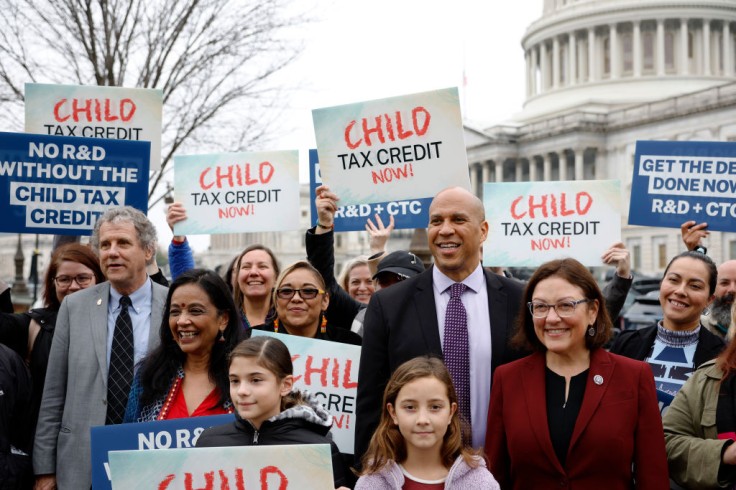
The House of Representatives achieved a crucial tax victory that benefits the child tax credit lifeline for low-income families.
The proposed $78 billion tax package has now been passed in the House and is moving forward to the Senate.
This legislative triumph not only signifies bipartisan unity but also holds the promise of a transformative lifeline for low-income families, particularly through the anticipated expansion of the child tax credit (CTC).
Crucial Tax Victory Commands House Approval
It turns out that the House approval of the bill overwhelmingly. Moving forward, this bipartisan bill still needs 60 votes to pass in the Senate amidst other competing priorities.
Chuck Marr, vice president for federal tax policy for the Center on Budget and Policy Priorities, stated that the tax break will not do everything it needs to be done to help families, but there are real benefits, as it is estimated to help 16 million kids in low-income families.
Marr added that this approval is definitely an important step in the right direction.
As the legislation moves forward, it heralds a new era of fiscal policies designed to provide substantial relief to those in need.
At the heart of this monumental tax package lies the ambitious expansion of the child tax credit, a lifeline eagerly awaited by low-income families.
Beyond extending access to the CTC, the proposed changes cast a retrospective gaze on the tax year 2023, with plans to enhance the refundable portion.
While acknowledging that the proposed adjustments may not match the generosity of the pandemic-era CTC, experts assert that the tangible benefits it brings are nonetheless significant for millions of struggling families.
Potential Impact: Elevating Families Beyond the Poverty Line
The potential impact of this envisioned child tax credit lifeline is nothing short of transformative. Forecasts from the Center on Budget and Policy Priorities suggest that, if enacted, the bill could raise as many as 400,000 children above the poverty line in its inaugural year.
An additional 3 million children might find themselves shielded from the harsh realities of poverty, providing a welcome reprieve for families navigating economic uncertainties.
Furthermore, eligible families stand to experience a palpable change in their financial landscape, with estimates from the Urban-Brookings Tax Policy Center projecting an average tax cut of $680 for the tax year 2023.
This injection of financial support aligns seamlessly with the legislation's overarching mission-to serve as a crucial relief mechanism for those dwelling in the low-income strata.
Long-Term Implications: A Call for Permanent CTC Expansion
Looking beyond the immediate impact, proponents of the bill passionately argue for the enduring benefits associated with a permanent expansion of the child tax credit.
Recent insights from the Urban Institute provide a compelling narrative, suggesting that a sustained version of the 2021 CTC increase could pave the way for elevated graduation rates and increased future earnings among children in recipient families.
This resonates as a poignant call for recognizing the profound, long-term effects that even a modest income boost can bring throughout the entirety of an individual's life.
In conclusion, the House's approval of the $78 billion tax package emerges not just as a legislative triumph but as a beacon of hope for low-income families grappling with financial uncertainties.
As the legislation advances towards Senate consideration, its potential to reshape the child tax credit landscape and fortify the economic foundations of vulnerable families becomes a crucial chapter in the ongoing national discourse surrounding economic relief and support.